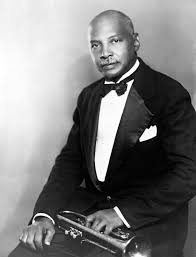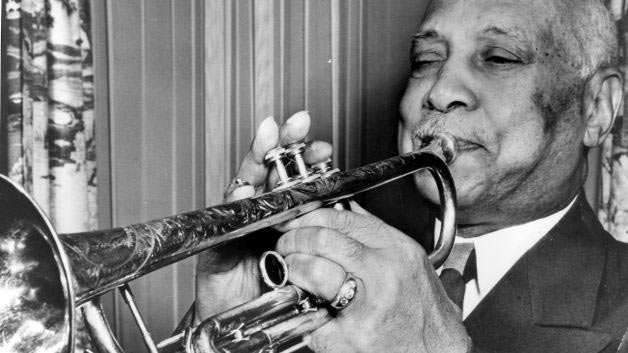William Christopher Handy, widely known as W.C. Handy, is celebrated as one of the most influential figures in the history of American music. Born on November 16, 1873, in Florence, Alabama, Handy grew up in a deeply religious household where music was an integral part of spiritual life. His father, a pastor, initially discouraged secular music, pushing Handy to focus on more traditional religious hymns. However, Handy’s passion for music was undeniable, and he would eventually go on to revolutionize the genre that would become known as “the blues.”
Early Life and Musical Roots
From a young age, Handy showed a deep interest in music. He learned to play the cornet and several other instruments by the time he was a teenager, often playing in local bands. Despite his father’s disapproval of “devil’s music,” Handy immersed himself in the rich sounds of African-American folk traditions, work songs, spirituals, and minstrel shows he encountered while traveling throughout the South. These early experiences deeply influenced his musical development.
Handy briefly worked as a school teacher, but his heart was always in music. He spent his early adulthood performing with various traveling minstrel shows and orchestras, where he gained a comprehensive understanding of different musical styles. He became particularly intrigued by the raw, emotional sounds of black folk music and the field hollers of laborers, which would later inspire his compositions.
A Pivotal Moment
One of the most significant turning points in W.C. Handy’s life came in 1903, when he was waiting at a train station in Tutwiler, Mississippi. There, he heard a local musician playing a haunting, repetitive melody on a guitar while sliding a knife blade across the strings—a precursor to what we now recognize as the “slide guitar” technique. The lyrics the man sang were about life’s struggles, and Handy was profoundly struck by the simplicity and emotional depth of the performance. This experience inspired him to begin writing and arranging music that incorporated these elements, ultimately shaping the future of the blues.
Rise to Fame: “The Father of the Blues”
In 1909, Handy moved to Memphis, Tennessee, where he became the bandleader at the famous Beale Street clubs, a hub for black music and culture. Memphis exposed Handy to a wider variety of musicians and audiences, allowing him to refine his distinctive sound, which blended traditional African-American folk music with elements of ragtime, marches, and brass band compositions.
Handy’s breakthrough came in 1912 with the publication of “The Memphis Blues,” often cited as the first-ever published blues song. This piece marked the beginning of Handy’s journey into national prominence. The song’s unique combination of African-American musical traditions and structured, popular compositions was groundbreaking and quickly garnered widespread attention.
In 1914, Handy released “St. Louis Blues,” arguably his most famous composition. The song became an international sensation and remains one of the most enduring blues songs of all time, covered by countless artists, including Bessie Smith, Louis Armstrong, and many more. It was “St. Louis Blues” that truly cemented W.C. Handy’s legacy as “The Father of the Blues.” Handy followed this success with several other major works, including “Beale Street Blues” (1916) and “Yellow Dog Blues” (1919).
Legacy and Contributions to American Music
Beyond his compositions, W.C. Handy made significant contributions to preserving and popularizing African-American music. His success helped establish the blues as a respected genre, paving the way for future musicians. Handy’s music transcended racial barriers, bringing black musical traditions into mainstream American culture.
Handy was also a savvy businessman. In 1917, he co-founded Pace & Handy Music Company, one of the first African-American-owned music publishing companies. This allowed him to control the rights to his work, ensuring that black composers and performers could benefit from their contributions to American music.
Throughout his life, Handy wrote several books, including his autobiography, Father of the Blues, published in 1941. In these writings, Handy reflected on his musical journey and the struggles he faced as a black composer in early 20th-century America. His contributions to both music and culture have been commemorated with numerous honors, including the dedication of W.C. Handy Park in Memphis, and his induction into the Alabama Music Hall of Fame.
Final Years and Death
Though W.C. Handy went blind in the mid-1940s due to a fall, he continued to promote his music and the legacy of the blues. He remained an influential figure until his death on March 28, 1958, in New York City. His funeral was attended by thousands, a testament to his profound impact on the world of music.
Conclusion
W.C. Handy’s legacy as the “Father of the Blues” is not just due to his iconic compositions, but also his role in elevating African-American music to a global stage. By blending folk traditions with contemporary styles, Handy created a unique sound that shaped the development of the blues and influenced generations of musicians. His music continues to resonate with listeners, reminding us of the deep emotional power and cultural significance of the blues. Through his innovative work, Handy gave voice to the joys, sorrows, and resilience of African-American life, leaving an indelible mark on American music history.


No responses yet